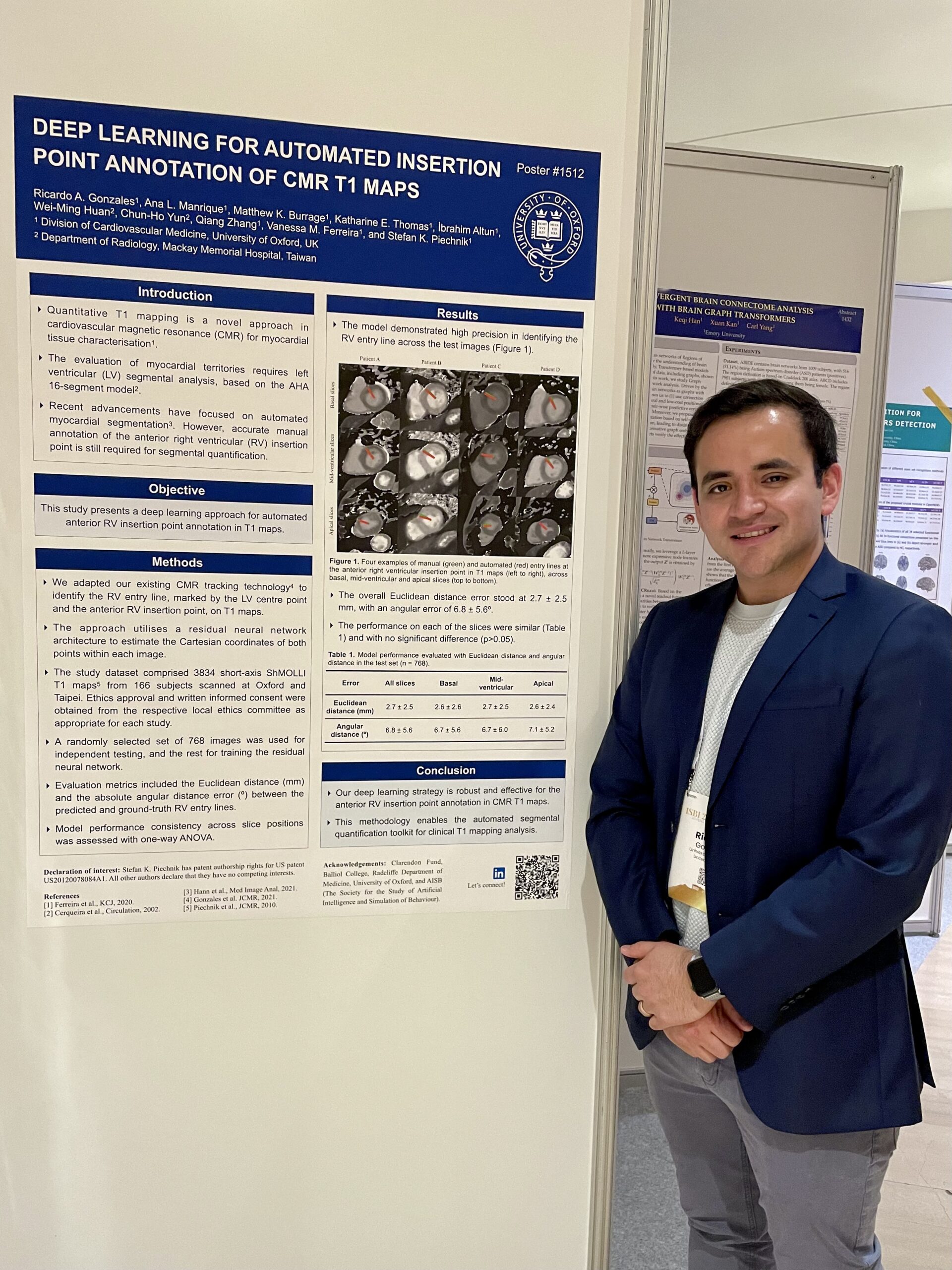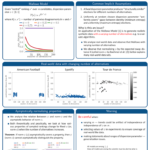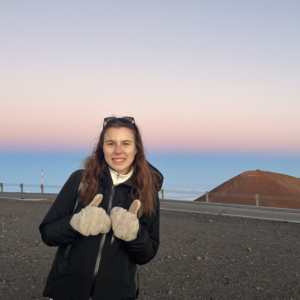Conference Reports: Empirical Methods in Natural Language Processing (EMNLP) 2022
Chen Tang (University of Surrey, chen.tang@surrey.ac.uk)
The 2022 Conference on Empirical Methods in Natural Language Processing (EMNLP) took place in December between 7^{th} and 11^{th} this year, hosted in Abu Dhabi National Exhibition Centre of United Arab Emirates (UAE). As one of the top-tier conferences in Natural Language Processing (NLP) and Artificial Intelligence (AI), EMNLP has a record attendance number of more than 3000 attendees in this year, of which 1,629 are in-person and 1,316 are virtual.
The first two days consist of 24 workshops and 6 tutorials in a range of NLP fields, and the main conference lasting 3 days started from 9th December. As in the past years, EMNLP has a very competitive acceptance rate for presenting the cutting-edge advances of research and burning issues in NLP. Resulting from the popularity of Deep Learning techniques in recent years, EMNLP received a large volume of submissions (4190) in this year, while the overall acceptance rate of the main conference dropped from 23% of 5 years ago to current 20%. In addition to 829 papers accepted as the long or papers, EMNLP also accepted an additional
549 (13%) papers in Findings.
Alongside the conference in daytime, there were two social events held at the night of 8^{th} and 10^{th}, respectively. One is the Welcome Reception held on Thursday December 8, 2022 from 7:00pm to 10:00pm. The location was the Aloft Abu Dhabi Hotel where the community can meet and make new friends and catch up with colleagues over a drink and light canapes. Another one was held on Saturday December 10, 2022 from 7:00pm — 10:00pm at the Ritz-Carlton Abu Dhabi, Grand Canal Hotel. With its captivating sunsets and extraordinary view of the Sheikh Zayed Grand Mosque, the attendees were able to enjoy an evening out at the Social Event with luxurious foods and drinks, along with Abu Dhabi’s local entertainment, compliments of the Department of Tourism, and a DJ for some evening dancing.
Keynote Lectures
There were 4 speakers invited to give us the their keynotes. Professor Neil Cohn who came from Tilburg University, Department of Communication and Cognition, gave the first talk of The Multimodal Language Faculty and the Visual Languages of Comics. Contrary to the notions of language as an amodal system, natural human communication is multimodal and combines speech, gestures, writing, and pictures. He showed us how the consistent "universal" linguistic principles persist across this structural diversity of different visual languages. He argued that a multi-modal language faculty requires us to change our conception of linguistic relativity, and he also showed how subtle structures of spoken languages permeate across to visual languages.
The second, which impressed me the most, is Nazneen Rajani, the speaker from Hugging Face (abbr. HF) Team. HF is one of the most popular
platform to share AI resources and models. Nazneen is a Research Lead at Hugging Face, a startup with a mission to democratize ML, leading data-centric ML research which involves systematically analyzing, curating, and automatically annotating data. Before HF, she worked at Salesforce Research with Richard Socher and led a team of researchers focused on building robust natural language generation systems based on LLMs. She gave us a macro-level view of how the NLP model landscape has evolved based on their systematic study of 75K HF models. In the second part, she discussed advances, challenges and opportunities in evaluating
and documenting NLP models developed in an industry setting. Based on the results, she lead us to see a paradigm shift from model-centric to
data-centric evaluation and documentation.
Gary Marcus who is an Emeritus Professor of Psychology and Neural Science at NYU, gave us the next talk. He is a successful scientist and also a serial entrepreneur (Founder of Robust.AI and Geometric.AI, acquired by Uber). He shared with us the topic of "Towards a Foundation for AGI", in which he shed light on the analysis of whether the large pretrained language models like GPT-3 and PaLM are adequate as a basis for artificial general intelligence (AGI), and if not, what would a better foundation for general intelligence look like?
Finally, Mona Diab who is the Lead Responsible AI Research Scientist with Meta, gave the last talk of "Towards a Responsible NLP: Walking
the Walk". Mona Diab is a very experienced researcher. In addition to her achievement in industry, she is also a full Professor of Computer
Science at the George Washington University (on leave) where she directs the CARE4Lang NLP Lab. Her talk posed a lot of deep questions to us,
e.g., Do we need to re-orient and re-pivot NLP? If so, what is needed to make this happen? Can we chart together a program where we ensure that
science is the pivotal ingredient in CL/NLP? Could Responsible NLP be an avenue that could lead us back towards that goal? In this talk, she
explored some "practical" ideas around framing a responsible NLP vision hoping to achieve a higher scientific standard for our field, addressing
issues from the "how" we conduct our research and venturing into the "what" we work on and produce using tenets from a responsible mindset
perspective.
Tutorials
Tutorials provide great opportunities for NLP researchers to get to know a new area or approach of NLP. The tutorials of EMNLP 2022 includes the
following topic:
- Meaning representations for natural language
- Arabic language processing
- Language-based coordination in deep multi-agent systems
- Causal inference for NLP
- Modular and parameter-efficient fine-tuning for NLP models
- Non-autoregressive model for fast sequence generation
Tutorials are all recorded and expected to be released in the future. You can check out details of tutorials and their speaker on this page.
Workshops and Volunteer
It was our honor to be invited to present our work in the 2nd Workshop on Natural Language Generation, Evaluation, and Metrics (GEM) and the 3rd Workshop on Figurative Language Processing (FLP) held on 7th and 8th December respectively. In the GEM workshop, we found out a variety of outstanding state-of-the-art works on Natural Language Generation (NLG), which is one of the most active research fields within NLP. Wegot the chance to make the acquaintance of lots of leading groups from top universities such as Cambridge, Oxford, Stanford, Carnegie Mellon, and so on. The authors from these leading groups illustrated us their work in detail with proficient but comprehensible instructions. We got a lot of inspirations via discussing current advances in their research
directions. The FLP workshop was also quite inspiring and covered a number of promising directions including processing of metaphor, euphemisms and other types of figurative languages.
On the second day (8^{th}), as volunteers we took responsibility for the Fourth Workshop on Financial Technology and Natural Language Processing (FinNLP). We had a keynote (Knowledge-Based News Event Analysis and Forecasting) from Dr. Oktie Hassanzadeh, a Senior Research Staff Member at IBM T.J. Watson Research Center, and an overview of recent FinNLP studies from the FinNLP organizer. We also got the chance to make friend with the host of FinNLP, Chung-Chi Chen who is a researcher from Artificial Intelligence Research Center, National Institute of Advanced Industrial Science and Technology, Japan. He did plenty of works in finance-oriented NLP and information retrieval area, and he also invited me to visit him in Tokyo, Japan for collaboration on Finance and NLG.
Main Conference Papers
In the main conference, there were 175 oral presentations and 654 posters in total within 3 days. Presentations are mainly divided into following tracks:
- Natural Language Generation
- Resources and Evaluation
- Semantics
- Summarization
- Industry
- NLP Applications
- Language Modeling and Analysis of Language Models
- Sentiment, Stylistic Analysis, Argument Mining & Discourse
- Speech, Vision, Robotics, Multimodal Grounding
- Question Answering
- Ethics & Computational Social Science and Cultural Analytics
- Dialog and Interactive Systems
- Multilinguality
- Efficient Methods for NLP
- Information Retrieval and Text Mining
- Interpretability, Interactivity, and Analysis of Models for NLP
- Machine Learning for NLP
- Machine Translation
- Commonsense Reasoning
- Unsupervised and Weakly Supervised Methods
- Morphology, Syntax, Linguistics, Psycholinguistics
Because of the large volume of presentations, it was hard to attend all of them. My research area is natural language generation, so we mainly joined the tracks related to natural language generation including 1, 4, 6, 10, 12, and 17.
Best paper:
The best paper award of EMNLP this year goes to "Abstract Visual Reasoning with Tangram Shapes" for the long paper, and "Topic-Regularized Authorship Representation Learning" for the short paper.
We really appreciate AISB awarded us a Travel Award to help with the cost of attendance. We are very grateful to get a chance to attend this
top-tier conference in person where we communicate with various excellent academic peers, and we believe this precious experience will contribute to our future research. The network built in this event allows us to better get involved with cutting-edge AI researches from all around the world.







 The
The